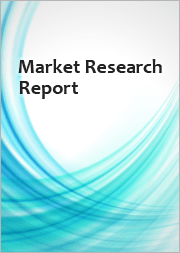
|
시장보고서
상품코드
1566212
보툴리눔톡신(보톡스) 시장 규모, 점유율, 성장 분석, 제품별, 용도별, 최종사용자별, 지역별 - 산업 예측(2024-2031년)Botulinum Toxin Market Size, Share, Growth Analysis, By Product (Type A, Type B), By Application (Aesthetic, Therapeutic), By End User (Hospitals, Dermatology Clinics), By Region - Industry Forecast 2024-2031 |
||||||
세계의 보툴리눔톡신(보톡스) 시장 규모는 2022년에 100억 1,000만 달러에 달하며, 예측 기간(2024-2031년)의 CAGR은 9.83%로, 2023년 111억 2,000만 달러에서 2031년까지는 235억 4,000만 달러로 성장할 전망입니다.
세계의 보툴리눔톡신(보톡스, BNT) 시장은 현재의 용도뿐만 아니라 치료용도 확대를 위한 연구개발의 발전과 미용 및 비침습적 시술에 대한 수요 증가로 인해 큰 성장이 예상되며, 7가지 항원형으로 구성된 주목할 만한 제품으로는 BNT-A의 한정된 제품군 및 BNT-B의 단일 제품이 있으며, 시장 다변화와 혁신의 가능성을 강조하고 있습니다. 신제품 출시 추세는 환자 부담 경감 개선과 보툴리눔 주사에 대한 보험 적용을 포함한 보험 적용 정책의 발전과 함께 이러한 성장을 더욱 촉진하고 있습니다. 미용 치료에 대한 소비자의 관심이 눈에 띄게 증가함에 따라 미국 보툴리눔 톡신 시장은 향후 예측 기간 중 지속적인 CAGR을 나타낼 것으로 예상됩니다. 기업이 R&D에 대한 전략적 투자를 통해 제품 포트폴리오를 강화하고 미용 및 치료 분야에서 보툴리눔 톡신이 더 널리 받아들여질 수 있도록할 것으로 보입니다. 전반적으로 이러한 요인들이 복합적으로 작용하여 보툴리눔 톡신 시장의 미래는 유망하며, 헬스케어 산업에서 역동적인 분야로 자리매김할 것으로 보입니다.
목차
서론
- 조사의 목적
- 정의
- 시장 범위
조사 방법
- 정보 조달
- 2차·1차 정보원
- 시장 규모 예측
- 시장의 전제조건과 제한
개요
- 시장 개요 전망
- 공급 수요 동향 분석
- 부문별 기회 분석
시장 역학과 전망
- 시장 역학
- 촉진요인
- 기회
- 억제요인
- 과제
- Porter의 산업 분석
주요 시장 인사이트
- 주요 성공 요인
- 경쟁의 정도
- 주요 투자 기회
- 시장의 에코시스템
- PESTEL 분석
- 기술 분석
- 규제 상황
보툴리눔톡신(보톡스) 시장 : 제품별
- 시장 개요
- 유형 A
- 보특스
- 디스포트
- 제오민
- 기타
- 유형 B
보툴리눔톡신(보톡스) 시장 : 용도별
- 시장 개요
- 치료
- 만성 편두통
- 과민성 방광
- 경부 근육긴장이상
- 경직
- 기타
- 미용
- 미간 주름
- 눈가 주름
- 이마 주름
- 기타
보툴리눔톡신(보톡스) 시장 : 최종사용자별
- 시장 개요
- 병원
- 피부과 클리닉
- 미용 센터 메디컬스파
보툴리눔톡신(보톡스) 시장 규모 : 지역별
- 시장 개요
- 북미
- 미국
- 캐나다
- 유럽
- 독일
- 스페인
- 프랑스
- 영국
- 이탈리아
- 기타 유럽 지역
- 아시아태평양
- 중국
- 인도
- 일본
- 한국
- 기타 아시아태평양
- 라틴아메리카
- 브라질
- 기타 라틴아메리카 지역
- 중동 및 아프리카(MEA)
- GCC 국가
- 남아프리카공화국
- 기타 중동 및 아프리카 지역
경쟁 구도
- 상위 5사의 비교
- 주요 기업의 시장 포지셔닝(2023년)
- 주요 시장 기업이 채택한 전략
- 시장에서의 최근 활동
- 주요 기업의 시장 점유율(2023년)
주요 기업 개요
- Ipsen Group
- Allergan Inc.
- Medy-Tox, Inc.
- Metabiologics
- Merz Pharma
- Supernus Pharmaceutical
- Evolus
- Galderma
- Lanzhou Institute of Biological Products
- Revance Therapeutics
- Hugel
- Suneva Medical
- Daewoong Pharmaceutical
- Mylan
- Teijin Pharma
- Eisai
- Prollenium Medical
Global Botulinum Toxin Market size was valued at USD 10.01 billion in 2022 and is poised to grow from USD 11.12 billion in 2023 to USD 23.54 billion by 2031, growing at a CAGR of 9.83% during the forecast period (2024-2031).
The global botulinum toxin (BNT) market is poised for significant growth, driven by increasing demand for cosmetic and non-invasive procedures, alongside advancements in research and development aimed at expanding therapeutic applications beyond its current uses. Comprising seven antigenic forms, notable products include a limited array of BNT-A and a singular BNT-B offering, underscoring the potential for market diversification and innovation. The trend towards new product launches, coupled with improving patient affordability and evolving reimbursement policies that now include coverage for botulinum injections, further propels this growth. With a notable increase in consumer interest in aesthetic treatments, the U.S. market for botulinum toxin is expected to experience a sustainable compound annual growth rate (CAGR) in the forthcoming forecast period. As companies invest strategically in R&D, this will enhance the product portfolio and encourage broader acceptance of botulinum toxin in both cosmetic and therapeutic domains. Overall, the confluence of these factors suggests a promising trajectory ahead for the botulinum toxin market, positioning it as a dynamic segment within the healthcare industry.
Top-down and bottom-up approaches were used to estimate and validate the size of the Global Botulinum Toxin market and to estimate the size of various other dependent submarkets. The research methodology used to estimate the market size includes the following details: The key players in the market were identified through secondary research, and their market shares in the respective regions were determined through primary and secondary research. This entire procedure includes the study of the annual and financial reports of the top market players and extensive interviews for key insights from industry leaders such as CEOs, VPs, directors, and marketing executives. All percentage shares split, and breakdowns were determined using secondary sources and verified through Primary sources. All possible parameters that affect the markets covered in this research study have been accounted for, viewed in extensive detail, verified through primary research, and analyzed to get the final quantitative and qualitative data.
Global Botulinum Toxin Market Segmental Analysis
Global Botulinum Toxin Market is segmented by Product, Application, End User, and Region. Based on Product, the market is segmented into Type A (Botox, Dysport, Xeomin, Others), Type B. Based on Application, the market is segmented into Therapeutic (Chronic Migraine, Overactive Bladder, Cervical Dystonia, Spasticity, Others), Aesthetic (Glabellar Lines, Crow's Feet, Forehead Lines, Others). Based on End User, the market is segmented into Hospitals, Dermatology Clinics, Cosmetic Centers and Medspas. Based on region, the market is segmented into North America, Europe, Asia Pacific, Latin America and Middle East & Africa.
Driver of the Global Botulinum Toxin Market
The increasing demand for minimally invasive cosmetic procedures is a significant market driver for the global botulinum toxin market. As more individuals seek non-surgical options to achieve youthful appearances with minimal recovery time, botulinum toxin treatments have become increasingly popular for reducing wrinkles and fine lines. This trend is further fueled by a growing awareness of the benefits of aesthetic procedures, enhanced by social media influence and celebrity endorsements. Additionally, advancements in technology and product formulations have improved the effectiveness and safety of botulinum toxin therapies, thereby expanding their application in both cosmetic and therapeutic settings, propelling market growth.
Restraints in the Global Botulinum Toxin Market
The global botulinum toxin market may face significant restraints due to the potential side effects associated with its use. Adverse reactions, including muscle weakness, allergic reactions, and localized pain, can deter patients from seeking treatments, thus impacting market growth. Additionally, the perception of safety risks can influence healthcare professionals' recommendations, further complicating patient acceptance. Regulatory scrutiny surrounding the approval and marketing of botulinum toxin products may also pose challenges, as companies must navigate stringent guidelines while addressing concerns related to side effects. The cumulative effect of these factors could inhibit the expansion of the market and limit its overall potential.
Market Trends of the Global Botulinum Toxin Market
The global botulinum toxin market is witnessing significant growth, driven predominantly by cosmetic procedures favored by women, who constitute a remarkable 92% of all treatments. With a rising number of individuals over 40 prioritizing their physical appearance, especially in developed nations, the demand for aesthetics enhancements continues to surge. This trend is emphasized by the remarkable statistic of over 2.5 million women aged 40-54 undergoing botulinum toxin procedures in 2020 alone. As societal norms around beauty evolve, this market trend indicates robust prospects for botulinum toxin, with a sustained focus on anti-aging solutions likely to propel its expansion well into the future.
Table of Contents
Introduction
- Objectives of the Study
- Definitions
- Market Scope
Research Methodology
- Information Procurement
- Secondary & Primary Data Sources
- Market Size Estimation
- Market Assumptions & Limitations
Executive Summary
- Market Overview Outlook
- Supply Demand Trend Analysis
- Segmental Opportunity Analysis
Market Dynamics & Outlook
- Market Dynamics
- Drivers
- Opportunities
- Restraints
- Challenges
- Porters Analysis
- Competitive rivalry
- Threat of Substitute Products
- Bargaining Power of Buyers
- Threat of New Entrants
- Bargaining Power of Suppliers
Key Market Insights
- Key Success Factor
- Degree of Competition
- Top Investment Pockets
- Ecosystem of the Market
- PESTEL Analysis
- Technology Analysis
- Regulatory Landscape
Botulinum Toxin Market, By Product
- Market Overview
- Type A
- Botox
- Dysport
- Xeomin
- Others
- Type B
Botulinum Toxin Market, By Application
- Market Overview
- Therapeutic
- Chronic Migraine
- Overactive Bladder
- Cervical Dystonia
- Spasticity
- Others
- Aesthetic
- Glabellar Lines
- Crow's Feet
- Forehead Lines
- Others
Botulinum Toxin Market, By End User
- Market Overview
- Hospitals
- Dermatology Clinics
- Cosmetic Centers and Medspas
Botulinum Toxin Market Size by Region
- Market Overview
- North America
- USA
- Canada
- Europe
- Germany
- Spain
- France
- UK
- Italy
- Rest of Europe
- Asia Pacific
- China
- India
- Japan
- South Korea
- Rest of Asia-Pacific
- Latin America
- Brazil
- Rest of Latin America
- Middle East & Africa (MEA)
- GCC Countries
- South Africa
- Rest of MEA
Competitive Landscape
- Top 5 Player Comparison
- Market Positioning of Key Players, 2023
- Strategies Adopted by Key Market Players
- Recent Activities in the Market
- Key Companies Market Share (%), 2023
Key Company Profiles
- Ipsen Group
- Company Overview
- Business Segment Overview
- Financial Updates
- Key Developments
- Allergan Inc.
- Company Overview
- Business Segment Overview
- Financial Updates
- Key Developments
- Medy-Tox, Inc.
- Company Overview
- Business Segment Overview
- Financial Updates
- Key Developments
- Metabiologics
- Company Overview
- Business Segment Overview
- Financial Updates
- Key Developments
- Merz Pharma
- Company Overview
- Business Segment Overview
- Financial Updates
- Key Developments
- Supernus Pharmaceutical
- Company Overview
- Business Segment Overview
- Financial Updates
- Key Developments
- Evolus
- Company Overview
- Business Segment Overview
- Financial Updates
- Key Developments
- Galderma
- Company Overview
- Business Segment Overview
- Financial Updates
- Key Developments
- Lanzhou Institute of Biological Products
- Company Overview
- Business Segment Overview
- Financial Updates
- Key Developments
- Revance Therapeutics
- Company Overview
- Business Segment Overview
- Financial Updates
- Key Developments
- Hugel
- Company Overview
- Business Segment Overview
- Financial Updates
- Key Developments
- Suneva Medical
- Company Overview
- Business Segment Overview
- Financial Updates
- Key Developments
- Daewoong Pharmaceutical
- Company Overview
- Business Segment Overview
- Financial Updates
- Key Developments
- Mylan
- Company Overview
- Business Segment Overview
- Financial Updates
- Key Developments
- Teijin Pharma
- Company Overview
- Business Segment Overview
- Financial Updates
- Key Developments
- Eisai
- Company Overview
- Business Segment Overview
- Financial Updates
- Key Developments
- Prollenium Medical
- Company Overview
- Business Segment Overview
- Financial Updates
- Key Developments



















